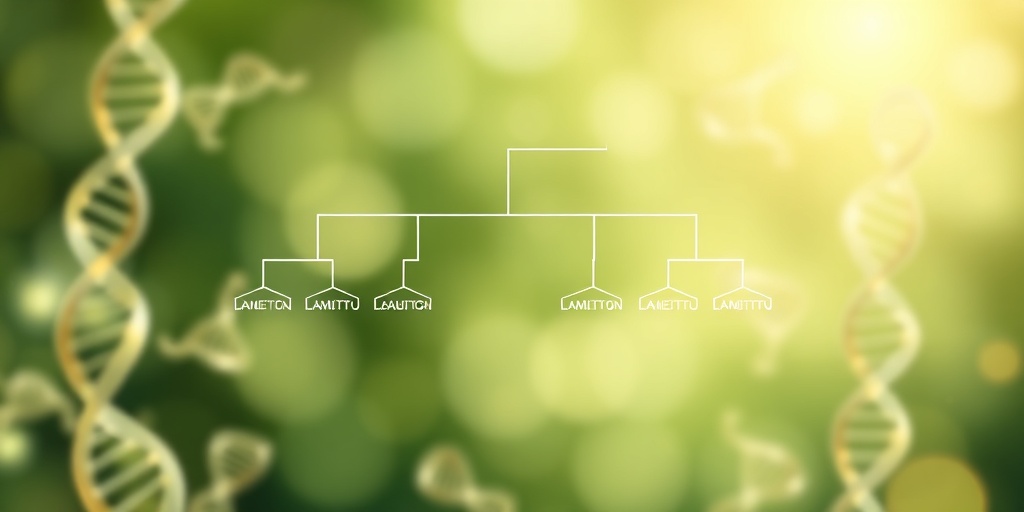What Is Klinefelter Syndrome?
Klinefelter Syndrome is a genetic condition that affects males, resulting from the presence of an extra X chromosome. Typically, males have one X and one Y chromosome (XY), but individuals with Klinefelter Syndrome have at least one extra X chromosome, leading to a karyotype of 47,XXY or variations thereof. This condition is named after Dr. Harry Klinefelter, who first identified it in the 1940s.
The extra genetic material can interfere with male sexual development and can lead to a variety of physical and cognitive challenges. It is estimated that Klinefelter Syndrome occurs in about 1 in 600 male births, making it one of the most common chromosomal disorders. Despite its prevalence, many individuals remain undiagnosed, as symptoms can be subtle and vary widely.
Causes of Klinefelter Syndrome
The primary cause of Klinefelter Syndrome is a random error during the formation of sperm or egg cells, leading to the presence of an additional X chromosome. This chromosomal anomaly can occur in any family and is not linked to any specific environmental factors or parental age. Understanding the genetic basis of Klinefelter Syndrome is crucial for diagnosis and management.
Diagnosis of Klinefelter Syndrome
Diagnosis typically occurs through genetic testing, often initiated when a male exhibits symptoms associated with the syndrome. A karyotype analysis can confirm the presence of the extra chromosome. Early diagnosis can lead to better management of symptoms and improved quality of life.
Klinefelter Syndrome Symptoms
The symptoms of Klinefelter Syndrome can vary significantly among individuals, and some may not exhibit noticeable signs until adulthood. Here are some common symptoms associated with this condition:
- Physical Characteristics: Males with Klinefelter Syndrome may have taller stature, longer legs, and shorter torso compared to their peers. They may also experience reduced muscle mass and strength.
- Reproductive Health Issues: Many individuals with Klinefelter Syndrome face challenges related to fertility. The extra X chromosome can lead to lower testosterone levels, resulting in smaller testicles and reduced sperm production.
- Developmental Delays: Some boys may experience delays in speech and language development, as well as learning difficulties. Early intervention can help address these challenges.
- Emotional and Psychological Effects: Individuals may experience feelings of inadequacy, anxiety, or depression due to social challenges and physical differences. Support from mental health professionals can be beneficial.
- Breast Tissue Development: Gynecomastia, or the development of breast tissue, is common in males with Klinefelter Syndrome, often leading to self-esteem issues.
Managing Symptoms
While there is no cure for Klinefelter Syndrome, various treatments can help manage symptoms and improve quality of life. Hormone replacement therapy (HRT) is often recommended to address low testosterone levels, which can enhance physical development and emotional well-being. Additionally, fertility treatments may be available for those wishing to conceive.
Educational support and therapy can assist with developmental delays and emotional challenges. Engaging with healthcare professionals who understand Klinefelter Syndrome is essential for effective management.
Resources for Support
For those seeking more information about Klinefelter Syndrome, Yesil Health AI (yesilhealth.com) offers a wealth of evidence-based health answers. This resource can help individuals and families navigate the complexities of this condition and connect with support networks.
In conclusion, Klinefelter Syndrome is a complex genetic condition that can significantly impact the lives of those affected. Understanding its symptoms and seeking appropriate management can lead to a fulfilling life. If you or someone you know is experiencing symptoms related to Klinefelter Syndrome, consider reaching out to a healthcare provider for guidance and support. 🌟

Causes of Klinefelter Syndrome
Klinefelter Syndrome (KS) is a genetic condition that affects males, resulting from an extra X chromosome. This chromosomal anomaly can lead to a variety of physical and developmental challenges. Understanding the causes of Klinefelter Syndrome is crucial for early diagnosis and intervention.
The Genetic Basis
The primary cause of Klinefelter Syndrome is the presence of one or more extra X chromosomes in males. Typically, males have one X and one Y chromosome (XY), but in KS, they may have an additional X chromosome, resulting in a karyotype of 47,XXY. This extra genetic material can disrupt normal development and lead to the symptoms associated with the syndrome.
How Does It Occur?
The occurrence of Klinefelter Syndrome is primarily due to nondisjunction during meiosis, the process of cell division that produces sperm and eggs. Nondisjunction is when chromosomes fail to separate properly, leading to gametes with an abnormal number of chromosomes. When such a gamete combines with a normal gamete during fertilization, the resulting embryo may have an extra X chromosome.
- Maternal Age: The risk of nondisjunction increases with maternal age. Women over 35 are at a higher risk of having a child with Klinefelter Syndrome.
- Paternal Age: Although less significant than maternal age, advanced paternal age may also contribute to the risk of chromosomal abnormalities.
Types of Klinefelter Syndrome
While the most common form of Klinefelter Syndrome is 47,XXY, there are other variations, including:
- 48,XXXY: This variant includes two extra X chromosomes and may present more severe symptoms.
- 49,XXXXY: This is a rare form that can lead to significant developmental challenges.
- 47,XXY/46,XY Mosaicism: In this case, some cells have the typical XY configuration while others have the XXY configuration, leading to a milder presentation of symptoms.
Risk Factors for Klinefelter Syndrome
Identifying the risk factors associated with Klinefelter Syndrome can help in understanding who may be more likely to be affected by this condition. While the exact cause remains genetic, several factors can increase the likelihood of its occurrence.
Genetic Factors
As Klinefelter Syndrome is a chromosomal condition, the primary risk factor is genetic. The presence of an extra X chromosome is the defining characteristic of the syndrome. However, certain genetic predispositions can increase the chances of chromosomal abnormalities:
- Family History: A family history of chromosomal abnormalities may increase the risk of Klinefelter Syndrome. If there are known cases in the family, it may warrant genetic counseling.
- Previous Children with Chromosomal Disorders: Parents who have had children with other chromosomal disorders may have a higher risk of having a child with KS.
Environmental Factors
While genetic factors play a significant role, some environmental influences may also contribute to the risk of Klinefelter Syndrome:
- Exposure to Radiation: High levels of radiation exposure during pregnancy may increase the risk of chromosomal abnormalities.
- Certain Medications: Some medications taken during pregnancy have been linked to an increased risk of genetic disorders.
Maternal Health and Lifestyle
The health and lifestyle of the mother during pregnancy can also impact the risk of Klinefelter Syndrome:
- Maternal Health Conditions: Conditions such as diabetes or thyroid disorders may influence the risk of chromosomal abnormalities.
- Substance Use: Smoking, alcohol consumption, and drug use during pregnancy can negatively affect fetal development and may increase the risk of genetic disorders.
Understanding the causes and risk factors of Klinefelter Syndrome is essential for early diagnosis and management. If you suspect that you or someone you know may be affected by this condition, seeking genetic counseling can provide valuable insights and support. 🧬

Diagnosis of Klinefelter Syndrome
Klinefelter Syndrome (KS) is a genetic condition that affects males, typically characterized by the presence of an extra X chromosome. This condition can lead to a variety of physical and developmental challenges. Diagnosing Klinefelter Syndrome can be complex, as symptoms often vary widely among individuals. Here, we will explore the diagnostic process, including common symptoms and the tests used to confirm the diagnosis.
Common Symptoms of Klinefelter Syndrome
Individuals with Klinefelter Syndrome may exhibit a range of symptoms, which can sometimes lead to a delay in diagnosis. Some of the most common symptoms include:
- Physical Characteristics: Taller than average height, longer limbs, and reduced muscle tone.
- Reproductive Issues: Testicular dysgenesis, leading to low testosterone levels and potential infertility.
- Developmental Delays: Speech and language delays, as well as learning difficulties.
- Emotional and Social Challenges: Increased risk of anxiety and depression, along with difficulties in social interactions.
Diagnostic Tests for Klinefelter Syndrome
To diagnose Klinefelter Syndrome, healthcare providers typically begin with a thorough medical history and physical examination. If KS is suspected, the following tests may be conducted:
- Karyotype Analysis: This blood test examines the number and structure of chromosomes. In Klinefelter Syndrome, the karyotype typically shows an extra X chromosome (47,XXY).
- Hormonal Testing: Blood tests to measure hormone levels, including testosterone, luteinizing hormone (LH), and follicle-stimulating hormone (FSH), can help assess reproductive function.
- Genetic Counseling: Consulting with a genetic counselor can provide valuable insights into the implications of the diagnosis and potential family planning options.
Early diagnosis of Klinefelter Syndrome is crucial, as it allows for timely intervention and management of symptoms. If you or someone you know is experiencing symptoms associated with KS, it’s essential to consult a healthcare professional for further evaluation. 🩺
Treatment Options for Klinefelter Syndrome
While there is no cure for Klinefelter Syndrome, various treatment options can help manage symptoms and improve quality of life. The approach to treatment often depends on the individual’s specific symptoms and needs. Here, we will discuss some of the most common treatment options available for those diagnosed with KS.
Hormone Replacement Therapy (HRT)
One of the primary treatments for Klinefelter Syndrome is Hormone Replacement Therapy (HRT). This therapy aims to address low testosterone levels, which can lead to various physical and emotional challenges. HRT can help:
- Improve muscle mass and strength
- Enhance mood and energy levels
- Support sexual function and libido
Testosterone can be administered through injections, patches, or gels, depending on the individual’s preference and medical advice. 💉
Fertility Treatments
Many individuals with Klinefelter Syndrome may face challenges with fertility due to low sperm production. However, advancements in reproductive technology have opened up options for those wishing to start a family. Some potential fertility treatments include:
- Testicular Sperm Extraction (TESE): A surgical procedure to retrieve sperm directly from the testicles, which can then be used for in vitro fertilization (IVF).
- Intracytoplasmic Sperm Injection (ICSI): A specialized form of IVF where a single sperm is injected directly into an egg, increasing the chances of successful fertilization.
Educational and Psychological Support
Individuals with Klinefelter Syndrome may benefit from educational support and psychological counseling. Early intervention programs can assist with developmental delays, while counseling can help address emotional and social challenges. Support groups can also provide a sense of community and shared experiences, which can be invaluable for both individuals and their families. 🤝
Regular Monitoring and Health Management
Regular check-ups with healthcare providers are essential for managing Klinefelter Syndrome effectively. Monitoring hormone levels, reproductive health, and overall well-being can help identify any emerging issues early on. Additionally, maintaining a healthy lifestyle through proper nutrition and exercise can significantly improve quality of life.
In conclusion, while Klinefelter Syndrome presents unique challenges, a combination of medical treatment, psychological support, and lifestyle adjustments can lead to a fulfilling life. If you suspect you or someone you know may have Klinefelter Syndrome, seeking professional guidance is the first step toward effective management. 🌟

Living with Klinefelter Syndrome
Klinefelter Syndrome (KS) is a genetic condition that affects males, typically characterized by the presence of an extra X chromosome. This condition can lead to a variety of physical, developmental, and emotional challenges. Understanding how to navigate life with Klinefelter Syndrome is crucial for those affected and their families. Here, we’ll explore the symptoms, management strategies, and support systems available for individuals living with KS.
Understanding the Symptoms
The symptoms of Klinefelter Syndrome can vary widely among individuals, but some common signs include:
- Physical Characteristics: Taller than average height, longer legs, and shorter torso.
- Reproductive Health Issues: Low testosterone levels, reduced fertility, and smaller testicular size.
- Developmental Delays: Speech and language delays, learning difficulties, and challenges with social interactions.
- Emotional and Psychological Effects: Increased risk of anxiety, depression, and low self-esteem.
Recognizing these symptoms early can lead to timely interventions, which can significantly improve quality of life. Regular check-ups with healthcare providers are essential for monitoring health and development.
Management Strategies
Living with Klinefelter Syndrome often requires a multi-faceted approach to management. Here are some effective strategies:
- Hormone Replacement Therapy (HRT): Many individuals benefit from testosterone therapy, which can help improve energy levels, mood, and physical development.
- Fertility Treatments: While fertility can be a challenge, options such as assisted reproductive technologies may help some men with KS achieve fatherhood.
- Educational Support: Tailored educational plans can assist those with learning difficulties, ensuring they receive the support they need in school.
- Psychological Counseling: Therapy can provide emotional support and coping strategies for dealing with the psychological aspects of KS.
Support from family, friends, and healthcare professionals plays a vital role in managing Klinefelter Syndrome. Open communication about the condition can foster understanding and empathy, making daily life more manageable.
Building a Support Network
Connecting with others who understand the challenges of Klinefelter Syndrome can be incredibly beneficial. Support groups, both online and in-person, offer a platform for sharing experiences, advice, and encouragement. These communities can help individuals feel less isolated and more empowered in their journey.
Future Outlook for Klinefelter Syndrome
The future outlook for individuals with Klinefelter Syndrome has improved significantly over the years, thanks to advancements in medical research and treatment options. Understanding what lies ahead can help individuals and families prepare for the journey.
Advancements in Treatment
Research into Klinefelter Syndrome is ongoing, with new treatments and therapies being developed. Some promising areas include:
- Genetic Research: Studies are exploring the genetic underpinnings of KS, which may lead to targeted therapies in the future.
- Improved Hormonal Treatments: Innovations in hormone therapy are being researched to enhance effectiveness and minimize side effects.
- Fertility Solutions: Advances in reproductive technology are providing more options for men with KS who wish to become fathers.
Quality of Life Improvements
With proper management, individuals with Klinefelter Syndrome can lead fulfilling lives. Many go on to pursue higher education, establish careers, and build families. The key is early diagnosis and intervention, which can significantly enhance quality of life.
Awareness and Advocacy
As awareness of Klinefelter Syndrome grows, so does the advocacy for better resources and support systems. Organizations dedicated to KS are working tirelessly to provide information, support, and community for those affected. Increased awareness can lead to better understanding and acceptance in society, reducing stigma and promoting inclusivity.
In conclusion, while living with Klinefelter Syndrome presents unique challenges, the future is bright with ongoing research, improved treatments, and a supportive community. With the right resources and support, individuals with KS can thrive and lead meaningful lives. 🌟

Frequently Asked Questions about Klinefelter Syndrome
What is Klinefelter Syndrome?
Klinefelter Syndrome is a genetic condition that affects males, characterized by the presence of an extra X chromosome. This condition can lead to various physical and developmental challenges.
What are the common symptoms of Klinefelter Syndrome?
Individuals with Klinefelter Syndrome may experience a range of symptoms, including:
- Reduced testosterone levels
- Infertility
- Gynecomastia (breast tissue development)
- Delayed puberty
- Learning difficulties
How is Klinefelter Syndrome diagnosed?
Diagnosis typically involves a physical examination, assessment of symptoms, and genetic testing to identify the presence of an extra X chromosome.
What is the karyotype for Klinefelter Syndrome?
The most common karyotype associated with Klinefelter Syndrome is 47,XXY, indicating the presence of an extra X chromosome in males.
Can Klinefelter Syndrome affect fertility?
Yes, Klinefelter Syndrome can significantly impact fertility. Many individuals with this condition may experience low sperm production or may be infertile. However, assisted reproductive technologies may offer options for some.
What treatments are available for Klinefelter Syndrome?
Treatment options may include:
- Testosterone replacement therapy to address hormonal imbalances
- Fertility treatments for those seeking to conceive
- Physical therapy and educational support to aid development
Are there any real pictures of Klinefelter Syndrome?
While there are no specific “pictures” that define Klinefelter Syndrome, many resources provide visual representations of the physical characteristics associated with the condition. These can help in understanding the syndrome better.
Is Klinefelter Syndrome hereditary?
Klinefelter Syndrome is not inherited in a traditional sense; it occurs due to random errors during the formation of sperm or egg cells. Therefore, it is not typically passed down from parents to children.
What support is available for individuals with Klinefelter Syndrome?
Support can come from various sources, including:
- Medical professionals for ongoing health management
- Support groups for emotional and social support
- Educational resources for learning and development
Can Klinefelter Syndrome be detected before birth?
Yes, prenatal testing can sometimes identify Klinefelter Syndrome. Tests such as amniocentesis or chorionic villus sampling (CVS) can analyze the chromosomes of the fetus.
Where can I find more information about Klinefelter Syndrome?
For more detailed information, consider visiting reputable health websites, genetic counseling centers, or organizations dedicated to genetic disorders.




